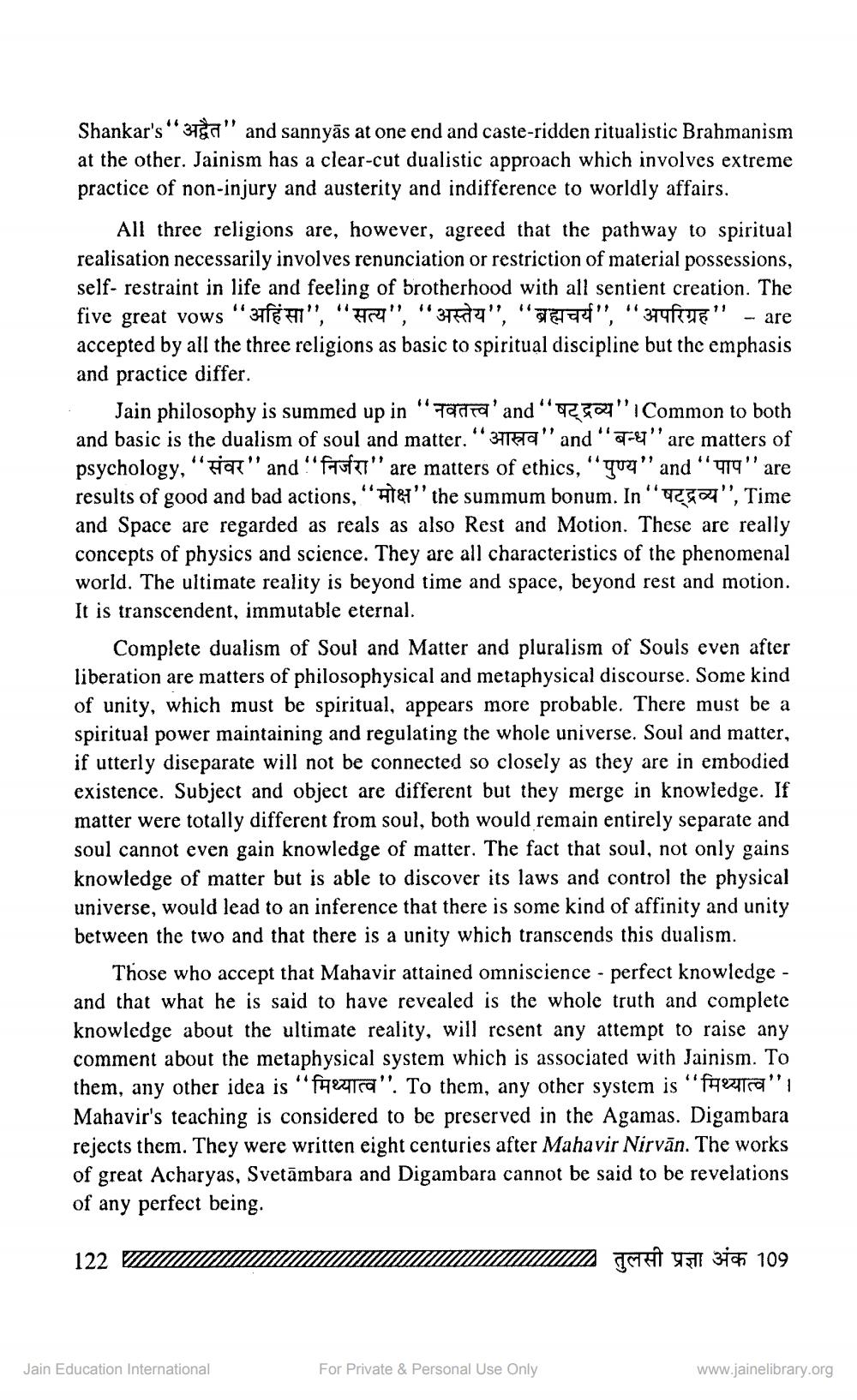________________
Shankar's" 3787" and sannyās at one end and caste-ridden ritualistic Brahmanism at the other. Jainism has a clear-cut dualistic approach which involves extreme practice of non-injury and austerity and indifference to worldly affairs.
All three religions are, however, agreed that the pathway to spiritual realisation necessarily involves renunciation or restriction of material possessions, self- restraint in life and feeling of brotherhood with all sentient creation. The five great vows "TË HI", " Y", " da", "taret", "374PRUE" - are accepted by all the three religions as basic to spiritual discipline but the emphasis and practice differ.
Jain philosophy is summed up in "padra' and "&ga" Common to both and basic is the dualism of soul and matter." 31 " and "f-8'' are matters of psychology, "संवर" and "निर्जरा" are matters of ethics, "पुण्य" and "पाप' are results of good and bad actions, "He'' the summum bonum. In "apga4", Time and Space are regarded as reals as also Rest and Motion. These are really concepts of physics and science. They are all characteristics of the phenomenal world. The ultimate reality is beyond time and space, beyond rest and motion. It is transcendent, immutable eternal.
Complete dualism of Soul and Matter and pluralism of Souls even after liberation are matters of philosophysical and metaphysical discourse. Some kind of unity, which must be spiritual, appears more probable. There must be a spiritual power maintaining and regulating the whole universe. Soul and matter, if utterly diseparate will not be connected so closely as they are in embodied existence. Subject and object are different but they merge in knowledge. If matter were totally different from soul, both would remain entirely separate and soul cannot even gain knowledge of matter. The fact that soul, not only gains knowledge of matter but is able to discover its laws and control the physic: universe, would lead to an inference that there is some kind of affinity and unity between the two and that there is a unity which transcends this dualism.
Those who accept that Mahavir attained omniscience - perfect knowledge - and that what he is said to have revealed is the whole truth and complete knowledge about the ultimate reality, will resent any attempt to raise any comment about the metaphysical system which is associated with Jainism. To them, any other idea is "ferra". To them, any other system is "falta'', Mahavir's teaching is considered to be preserved in the Agamas. Digambara rejects them. They were written eight centuries after Mahavir Nirvān. The works of great Acharyas, Svetāmbara and Digambara cannot be said to be revelations of any perfect being.
122 Z
VITTUNITI
TE 51 310 109
Jain Education International
For Private & Personal Use Only
www.jainelibrary.org




